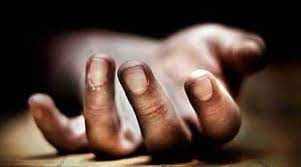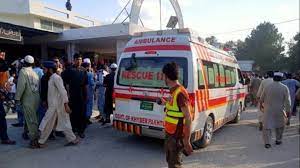“US, India on a regular basis…”: State department remarks on human rights matters
Following the flagging of “significant human rights issues,” including the violence in Manipur last year, in a recent report by the Bureau of Democracy, Human Rights, and Labor, a US State Department official said on Monday that the US and India routinely consult at the highest levels on issues pertaining to human rights and democracy.

Robert S. Gilchrist, a senior bureau official, told reporters during an interview that “the US and India regularly consult at the highest levels on democracy and human rights issues.”
The annual Country Reports on Human Rights Practices were published by US Secretary of State Antony Blinken, after which a press conference was conducted.
“We strongly encourage, urge India to uphold its human rights obligations and commitments,” Gilchrist said. We also have frequent meetings with members of civil society in the US and India to hear their viewpoints, which are then included into the Human Rights Report. Furthermore, we urge the Indian government to routinely meet and confer with civil society groups that represent a range of demographics.
He went on to say that there were many phases involved and that the US considered this to be a crucial issue when engaging with India both in conversation and in other contexts.
The “2023 Country Reports on Human Rights Practices: India,” which were released on Monday and were mandated by the US Congress, included, among other things, the Manipur crisis, extrajudicial killings, encounters between government forces and nongovernment organizations, arbitrary arrests and detention of activists Umar Khalid and journalist Siddique Kappan, and denial of a fair trial.
The Income Tax searches on the British Broadcasting Corporation (BBC) headquarters in Delhi and Mumbai were also noted.
The statement said, “The search was conducted soon after a BBC documentary that claimed Prime Minister Modi, who was Gujarat’s Chief Minister at the time, had a hand in the 2002 riots that left over 2,000 people dead, most of them Muslims. The program aired in January. Tax authorities searched and confiscated equipment from journalists who were not engaged in the organization’s financial procedures, despite the fact that they claimed the search was driven by anomalies in the ownership and tax payments of the BBC. The government jailed student protestors who planned viewing parties, compelled media businesses to erase links to the movie, and declared emergency powers to prohibit the documentary’s broadcast.
The program also discussed Rahul Gandhi, the head of the Congress, being found guilty and given a two-year jail term by a Gujarati court.
“Some domestic and international human rights groups engaged in advocacy or monitoring of human rights trends operated without government restriction to monitor or investigate human rights conditions or cases and publish their findings,” the report stated in reference to human rights groups bringing attention to the problems in India. Many human rights organizations, however, noted that government representatives seldom ever collaborated with these NGOs and that they were subject to constraints.
Political parties’ “disinformation and harassment campaigns on social media to influence election results” were also noted in the study.
“Opposition political party members reported obstacles, such as attacks on social media, retaliation for criticizing government officials or policies, and restrictions on using the platform for campaigning.”
“There were a number of press and civil society reports of representatives of political parties using disinformation tactics against civil society organizations, religious minorities, such as Sikhs and Muslims, and the political opposition, sometimes depicting them as security threats,” the report said, mentioning the spread of false information against Muslims and Sikhs.
S Jaishankar: “I don’t need the UN to tell me that elections should be fair.”
In response to a comment made by Stephane Dujarric, the spokesman for UN Secretary-General Antonio Guterres, earlier in April, External Affairs Minister S Jaishankar said, “I don’t need the UN to tell me that our elections should be free and fair.” I have the Indian populace. They’ll see to it that there are free and fair elections. Thus, don’t stress about it.
“What we very much hope is that everyone’s rights, including political and civil rights, are protected in India, as in any country that is holding elections, and that everyone is able to vote in an atmosphere that is free and fair,” said Dujarric in a statement.






